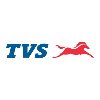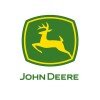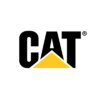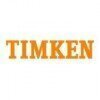27 GKN Jobs

Maintenance Supervisor- Electrical
GKN
posted 1mon ago
Job Role Insights
Flexible timing
Key skills for the job
Job Description
Role purpose - Supervises employees on an assigned shift to perform maintenance or service functions to specific time, quality, and cost standards. At more senior levels may include a higher degree of troubleshooting and more complex maintenance such as machine installation/replacement or electrical/mechanical work.
Key responsibilities
Site Maintenance
Perform a range of site maintenance activities, critically reviewing and providing input while working within the established site maintenance plan to achieve pre-established outcomes.
Equipment Maintenance and Repair
Troubleshoot and diagnose highly complex equipment and systems for emergency repairs.
Operations Management
Supervise others working within established operational systems.
Leadership and Direction
Explain the local action plan to support team members in their understanding of what needs to be done, and how this relates to the broader business plan and the organizations strategy, mission and vision; motivate people to achieve local business goals.
Work Scheduling and Allocation
Develop short- or medium-term work schedules in order to achieve planned commitments. Approve overtime or use additional resources as needed.
Performance Management
Respond to personal objectives and use performance management systems to improve personal performance. OR Monitor the performance of the team; allocate work and review completion, take appropriate corrective action to ensure timeliness and quality; contribute to formal individual performance management and appraisal.
Health, Safety and Environment
Follow the organizations Health, Safety and Environment (HSE) policies, procedures and mandatory instructions; to identify and mitigate environmental risks and risks to the wellbeing of oneself and others in the workplace; instruct the team in safe working methods; identify instances of risky behaviors within the team and take appropriate action, escalating serious issues as appropriate.
Quality
Plan and coordinate testing and inspection of products and processes. Implement corrective actions or continuous improvement initiatives, and monitoring them to make sure they are effective.
Operational Compliance
Identify, within the team, instances of non-compliance with the organizations policies and procedures and/or relevant regulatory codes and codes of conduct, reporting these and escalating issues as appropriate.
Internal Communications
Help others get the most out of internal communications systems by offering support and advice.
Organizational Capability Building
Use the organizations formal development framework to identify the teams individual development needs. Plan and implement actions to build their capabilities. Provide training or coaching to others throughout the organization in own area of expertise to enable others to improve performance and fulfill personal potential.
Maintenance and Repair Planning
Plan and coordinate repair, maintenance, and construction work to deliver work to cost, time, and quality standards. Includes scheduling workflow and allocating resources.
Improvement/Innovation
Identify shortcomings in existing processes, systems and procedures, and use established change management programs to address them.
Knowledge Management System
Help others get the most out of knowledge management systems by offering support and advice.
Project Management
Work within an established project management plan to achieve specific goals.
Values Behaviours
Ingenious: Manages complexity
Makes sense of complex, high quantity, and sometimes contradictory information to effectively solve problems. For example, consistently looks at complex issues from many angles; obtains a rich and deep understanding; swiftly cuts to the core issue; skillfully separates root causes from symptoms.
Ingenious: Effective decision making
Makes good and timely decisions that keep the organization moving forward. For example, consistently demonstrates strong judgment; may be sought out by others for expertise and guidance. Takes smart, independent action in urgent and non-routine situations, knows when to escalate for others involvement.
Collaborative: Drives engagement
Creates a climate where people are motivated to do their best to help the organization achieve its objectives. For example, shares insight into the purpose of the work, involves others appropriately and gives them credit for their contributions. Praises the successes of others.
Principled: Accountability
Holds self and others accountable to meet commitments. For example, accepts responsibility for own work, both successes and failures. Handles fair share and does not make excuses for problems. Usually meets commitments to others.
Principled: Communicates effectively
Develops and delivers multi-mode communications that convey a clear understanding of the unique needs of different audiences. For example, disseminates knowledge, insights, and updates in a polished, precise, and compelling manner. Demonstrates a deep interest in others comments. Creates rich documents and reports.
Principled: Manages challenging conversations
Steps up to address difficult issues, saying what needs to be said. For example, shares own ideas and points of view openly, regardless of potential criticism or risk; shows conviction when faced with adversity and challenges; raises difficult topics to be sure they are addressed.
Driven: Prioritisation
Plans and prioritizes work to meet commitments aligned with organizational goals. For example, outlines clear plans that put actions in a logical sequence; conveys some time frames. Aligns own work with relevant workgroups. Takes some steps to reduce bottlenecks and speed up the work.
Driven: Results driven
Consistently achieves results, even under tough circumstances. For example, holds self to high standards of performance; sets some challenging goals; wants to achieve meaningful results; pursues initiatives/efforts to successful completion and closure. Focuses on key goals, even during setbacks and obstacles.
Driven: Action oriented
Takes on new opportunities and tough challenges with a sense of urgency, high energy, and enthusiasm. For example, takes timely action on important or difficult issues. Identifies and pursues new opportunities that benefit the organization.
Driven: Empowering
Provides direction, delegating, and removing obstacles to get work done. For example, confirms mutual agreement on accountabilities, fostering strong coordination and minimizing duplicated efforts. Communicates delays or problems early so others can manage their own work schedules effectively.
Skills
Planning and Organizing
Works without supervision and provides technical guidance when required on planning, organizing, prioritizing and overseeing activities to efficiently meet business objectives.
Policy and procedures
Works without supervision and provides technical guidance when required on developing, monitoring, interpreting and understanding policies and procedures, while making sure they match organizational strategies and objectives.
Verbal Communication
Uses clear and effective verbal communications skills without supervision and provides technical guidance when required on expressing ideas, requesting actions and formulating plans or policies.
Action Planning
Works without supervision and provides technical guidance when required on developing appropriate plans or performing necessary actions based on recommendations and requirements.
Review and Reporting
Works without supervision and provides technical guidance when required on reviewing and creating relevant, lucid and effective reports.
Health and Safety
Manages and applies safe systems of work without supervision and provides technical guidance when required.
Adaptive Mindset
Works with full competence to shift into and out of a mental mindsets associated with assessing the facts and circumstances of the current situation and/or environment and making the appropriate/innovative adjustments to thinking and work habits to thrive in any scenario. Typically works without supervision and may provide technical guidance.
Masters Service Conversations
Works with full competence to navigate customer conversations by leveraging the four parts of a service conversation: open, learn, reply, and close. Typically works without supervision and may provide technical guidance.
Education
Short-Cycle Tertiary Education
Experience
Experience enables job holder to deal with the majority of situations and to advise others (Over 3 years to 6 years)
Employment Type: Full Time, Permanent
Read full job descriptionPrepare for Maintenance Supervisor roles with real interview advice
People are getting interviews at GKN through
People are getting interviews through
(based on 15 GKN interviews) What people at GKN are saying
Maintenance Supervisor salary at GKN





























